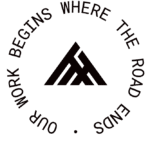A Testament to Collective Determination
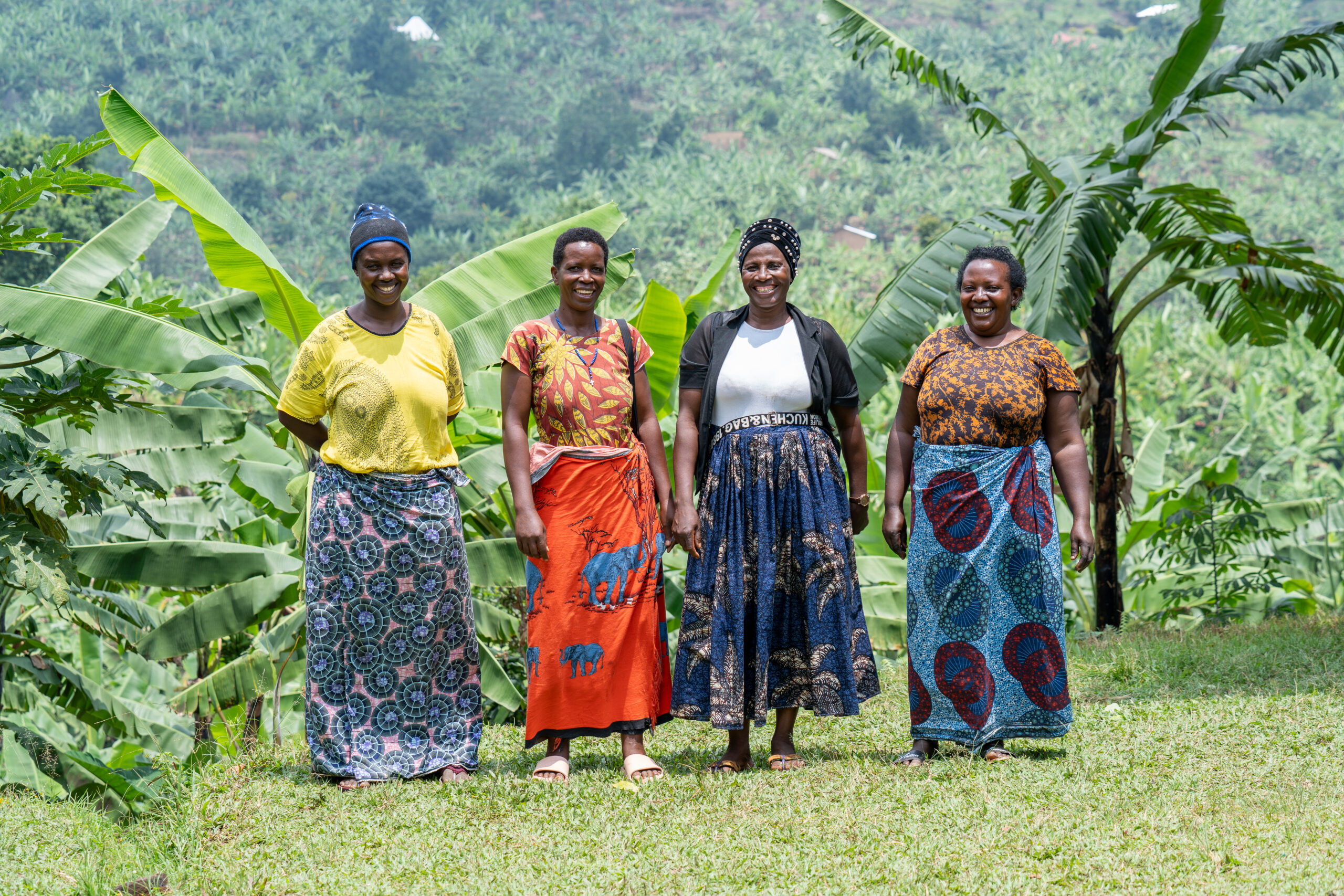
Faced with low agricultural yields, limited income, and the challenge of meeting basic needs for their families, a group of 29 women in a remote village in Kanungu formed a Village Savings and Loans Association in 2021 as part of the RTV program. “We would work hard to grow crops, but we lacked knowledge of modern agricultural techniques, resulting in poor yields during harvest,” shares Ruth, chairperson of the women’s VSLA. “Things started changing when we partnered with RTV. They brought trainers who trained us in good agronomic practices. We also learned about entrepreneurship and setting up savings groups (Village Savings and Loans Associations or VSLAs). Women from my village decided to start our own VSLA, and we have done very well since,” Ruth shares further.
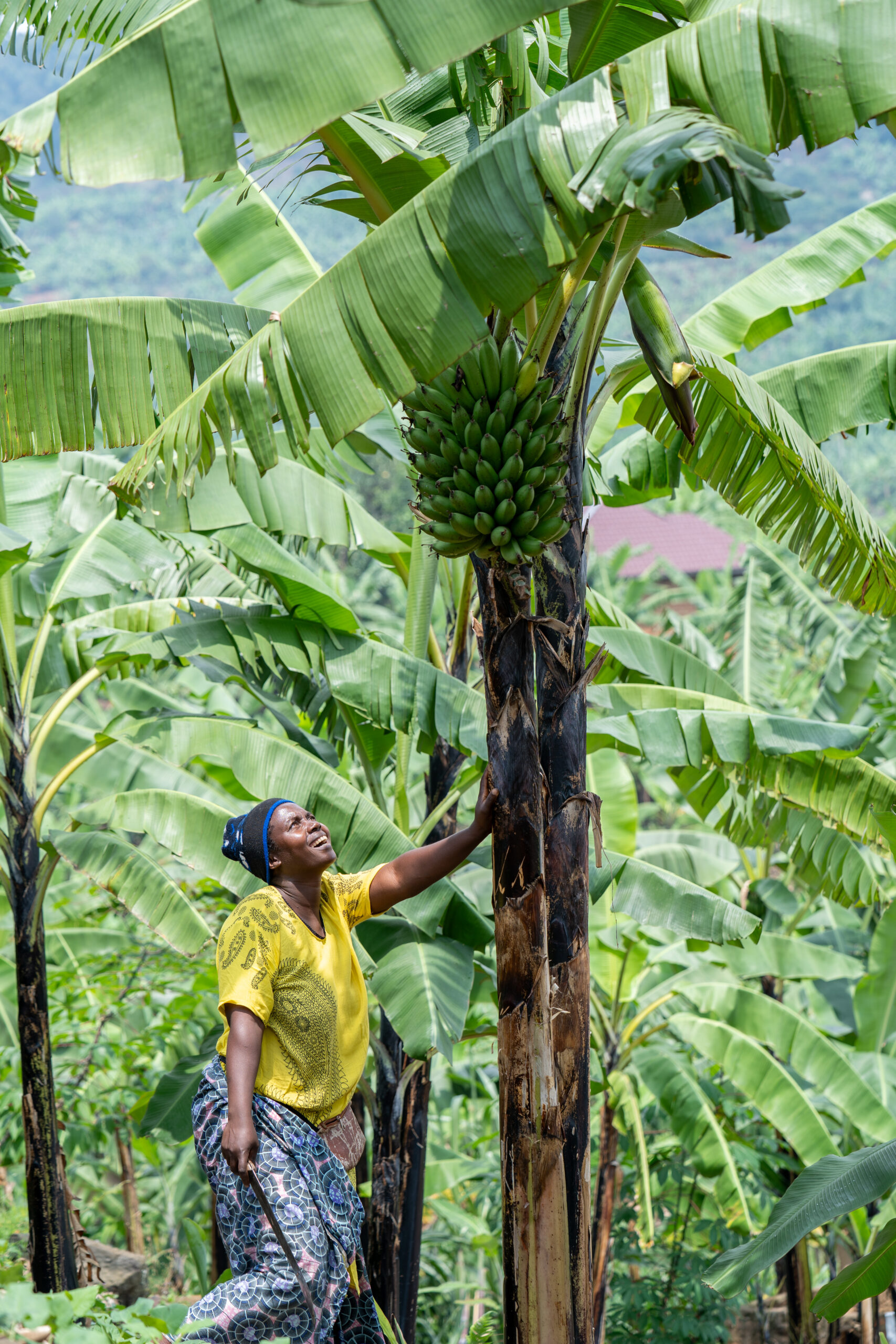
Ruth’s community participated in technical sessions on modern farming practices, including planting compound gardens to meet immediate food security needs. RTV also conducted sessions on gender equality, best practices around WASH and financial literacy, and Health Outreach sessions (HORs) to promote preventative health and services. Ruth applied what she had learned from agriculture training sessions to her banana (matooke) plantation and saw good results. At the same time, her VSLA started a livestock project wherein members received piglets in a phased manner. While initially, livestock helped Ruth pay for her children’s school fees and meet basic needs, improved harvests from her farm provided her with a stable and sustainable income. “I sell 30 to 40 bunches of matooke weekly, with a bunch going for UGX 10,000 ($2.7) to UGX 25,000 ($7). My plantation provides a stable income to take care of my family and maintain my business. We also feed on the surplus matooke at home,” Ruth shares. Not one to rest on what has been achieved so far, Ruth has bigger plans for the future. “I want to become one of the biggest matooke (plantain) distributors in Kanungu. I want to ensure my children keep going to school and grow up to be upstanding and contributing people in the community,” she says.
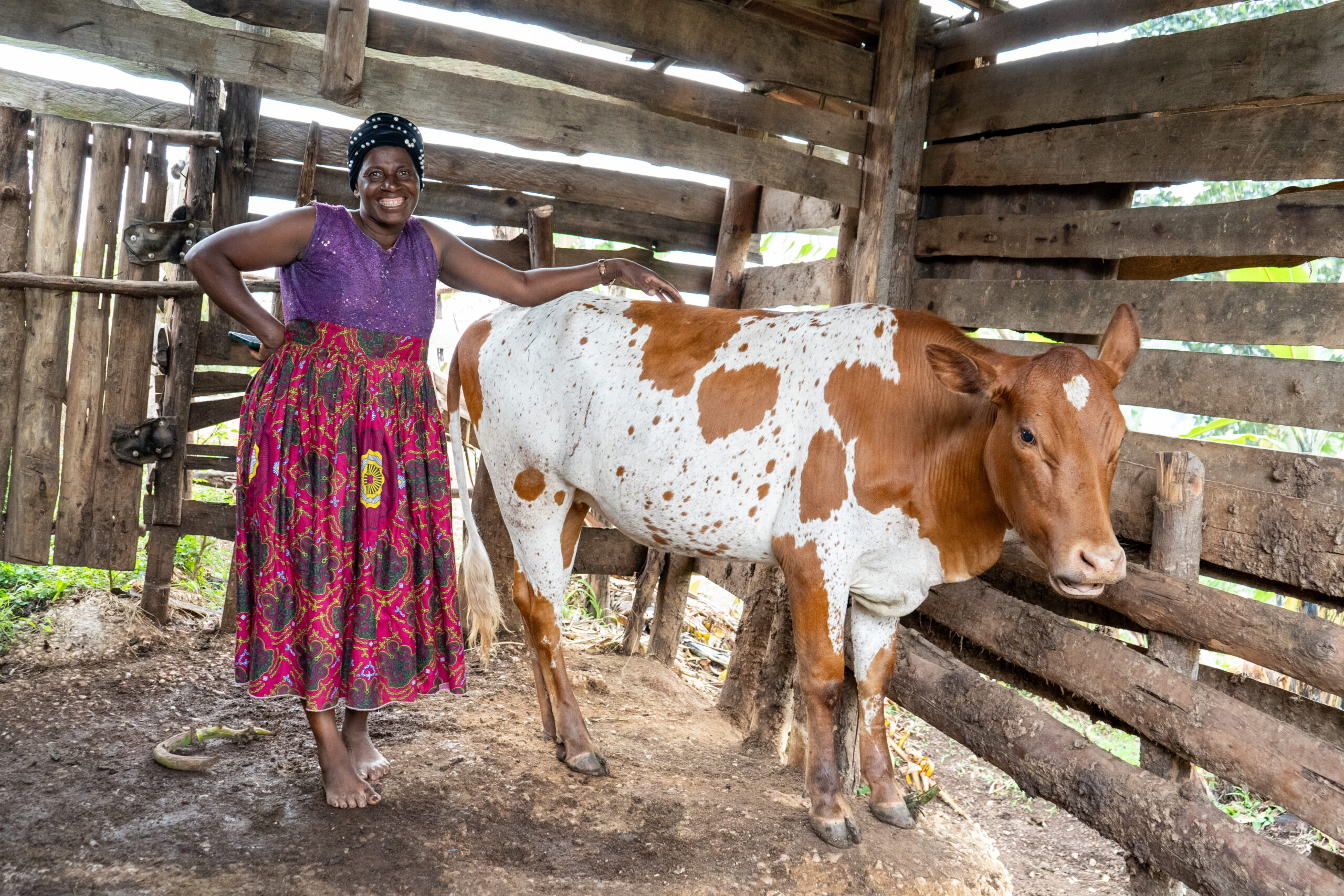
Lydia, another member of Ruth’s VSLA, is a local leader in the village and has witnessed the change in her community over the years. “We are now getting better yields because of improved agricultural methods such as adding organic manure and pesticides. We now have enough food to eat and sell to get income to support our families,” Lydia says. “As the local council chairperson of my village, I have had the privilege of visiting homesteads, and I have seen great progress from when we started,” she adds. Lydia used her income from the group’s livestock project to buy pigs of a better breed and a cow to produce milk. She has been able to ensure her children’s education, with two of her five children pursuing nursing and technical studies.
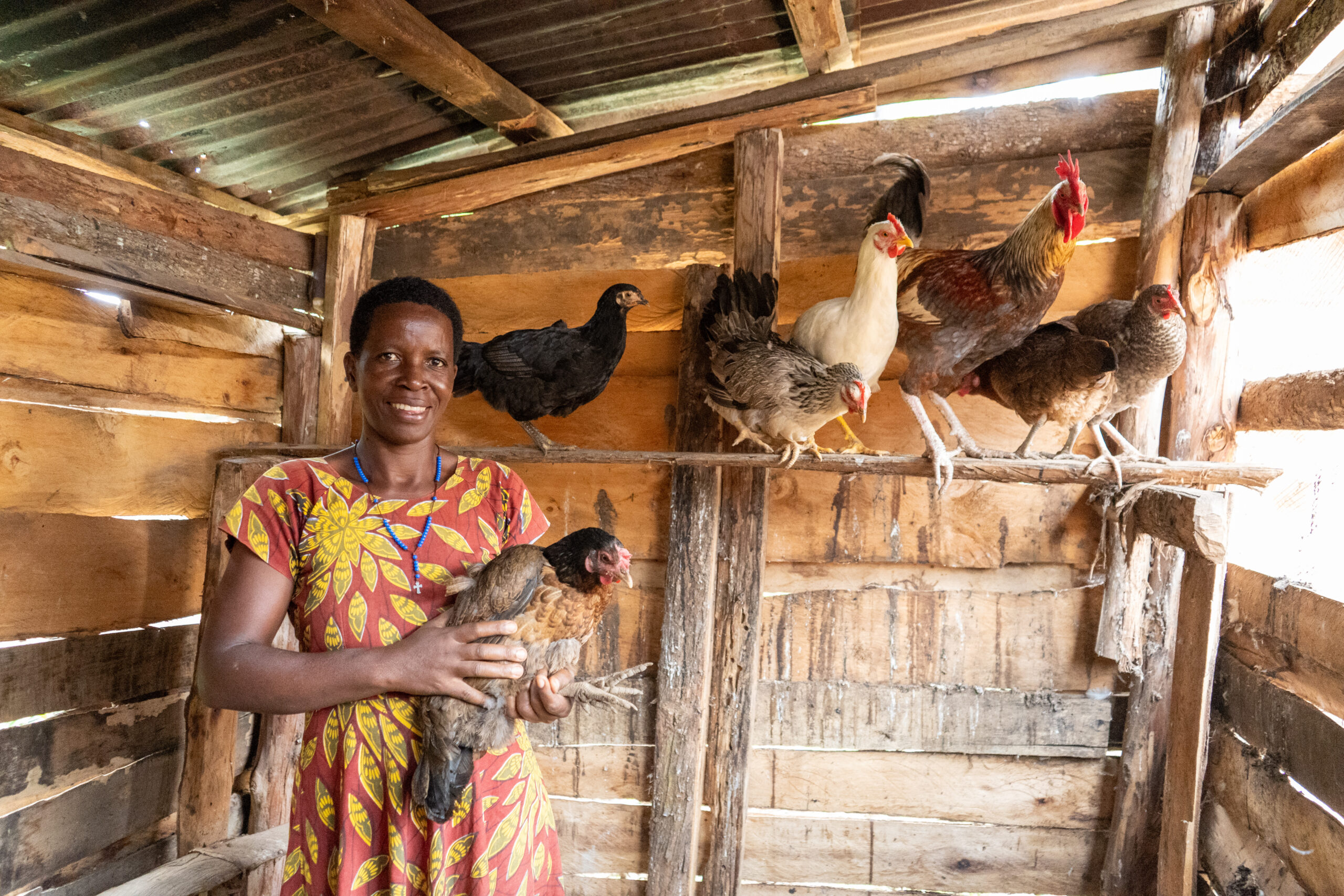
Agrippina, a 50-year-old member and secretary of the group, also faced similar challenges due to her lack of financial and agricultural knowledge. Determined to improve her family’s livelihood, she borrowed UGX 200,000 ($56) from her VSLA and invested in chickens. Her livestock also includes pigs and goats. While her livestock has provided a stable income for the family, her active involvement in the VSLA as the secretary has helped her showcase her leadership skills. “Being the secretary of our savings group, I have gained confidence while interacting with many people. I can now express myself freely. I have also learned record-keeping skills since I note down the group’s minutes during meetings. This did not seem possible a few years ago.” Agrippina shares.
Be part of our journey. Support last-mile communities by supporting Raising The Village.
Let’s Stay Connected

